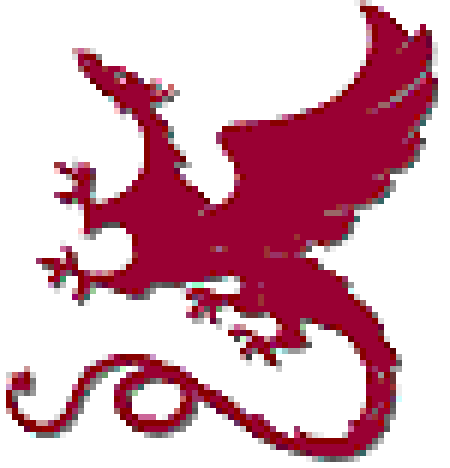This online course is available to students from Carnegie Mellon's global campuses. Download a PDF Version of the syllabus.
This class is supported in part by an AWS Educate grant and a Microsoft Azure Educator Grant Award.
Course Links
- Webpage: http://www.cs.cmu.edu/~msakr/15619-s16/
- OLI Portal: http://oli.cmu.edu accessed through the Carnegie Mellon Blackboard Portal: http://blackboard.andrew.cmu.edu
- TheProject.Zone: http://TheProject.Zone
- Piazza: https://piazza.com/cmu/spring2015/1531915619/home
Course Overview
Title: Cloud Computing
Units: 15-319: 9 units; 15-619: 12 units.
Pre-requisites for undergraduate students: A grade of "C" or better in 15-213.
Pre-quisites for graduate students: Knowledge of computer systems, programming and debugging, with a strong competency in at least one language (such as Java/Python), and the ability to pick up other languages as needed.
Description:This on-line course gives students an overview of the field of Cloud Computing, its enabling technologies, main building blocks, and hands-on experience through projects utilizing public cloud infrastructures (Amazon Web Services (AWS) and Microsoft Azure). Cloud computing services are being adopted widely across a variety of organizations and in many domains. Simply, cloud computing is the delivery of computing as a service over a network, whereby distributed resources are rented, rather than owned, by an end user as a utility.
The course will introduce this domain and cover the topics of cloud infrastructures, virtualization, software defined networks and storage, cloud storage, and programming models. As an introduction, we will discuss the motivating factors, benefits and challenges of the cloud, as well as service models, service level agreements (SLAs), security, example cloud service providers and use cases. Modern data centers enable many of the economic and technological benefits of the cloud paradigm; hence, we will describe several concepts behind data center design and management and software deployment. Next, we will focus on virtualization as a key cloud technique for offering software, computation and storage services. We will study how CPU, memory and I/O resources are virtualized, with examples from Xen and VMWare, and present real use cases such as Amazon EC2. Within the same theme of virtualization, students will also be introduced to Software Defined Networks and Storage (SDN and SDS). Subsequently, students will learn about different cloud storage concepts including data distribution, durability, consistency and redundancy. We will discuss distributed file systems, NoSQL databases and object storage. HDFS, CephFS, HBASE, MongoDB, Cassandra, DynamoDB, S3, Swift and Ceph Object Gateway will be presented as case studies. Finally, students will understand the details of the MapReduce programming model and gain a broad overview of the Spark, GraphLab programming models as well as message queues and stream processing.
Students will work with Amazon Web Services and Microsoft Azure, use them to rent and provision compute resources and then program and deploy applications that run on these resources. Students will develop and evaluate scaling and load balancing solutions. In addition, students will work with cloud storage systems and learn to develop different applications in several programming paradigms. 15-619 students will have to complete an extra project which entails designing and implementing a complete web-service solution for querying big data. For the extra project, the student teams are evaluated based on the cost and performance of their web service.
Teaching Staff:
Prof. Majd F. Sakr msakr@cs.cmu.edu, GHC 7006, x8-1161 Office hours: Tuesday, 3-4pm (Pittsburgh)
Teaching Assistants:
Jinhong Chen <jinhongc@andrew.cmu.edu>
Wang Cheng <chengw1@andrew.cmu.edu>
Chaskiel Grundman < cg2v@andrew.cmu.edu>
Haoyuan (Alfred) Huang <haoyuanh@andrew.cmu.edu>
Ru Jia <rjia@andrew.cmu.edu>
Xingchi Jin < xingchij@andrew.cmu.edu>
Mrigesh Kalvani <mkalvai@andrew.cmu.edu>
Yishuang Lu <yishuanglu@cmu.edu>
Wei Luo <weiluo@andrew.cmu.edu>
Mohammed Suhail Rehman <suhailr@andrew.cmu.edu>
Madhur Shrimal <mshrimal@andrew.cmu.edu>
Lei Sun <leis1@andrew.cmu.edu>
Chrysanthi Vandera <cvandera@andrew.cmu.edu>
Zhengyi (Julie) Wang <zwang1@andrew.cmu.edu>
Yang Wang < yangw3@andrew.cmu.edu>
Shitao Weng <sweng@andrew.cmu.edu>
Yang Wu <yangwu@andrew.cmu.edu>
Ran (Ryan) Xian <rxian@andrew.cmu.edu>
Ruirui Xiang <ruiruix@andrew.cmu.edu>
Di Xiao <dxiao1@andrew.cmu.edu>
Kevin Xu <klx@andrew.cmu.edu>
Mengyun Yang <mengyuny@andrew.cmu.edu>
Liruoyang Yu <liruoyay@andrew.cmu.edu>
Yiming Zang <yzang@andrew.cmu.edu>
Yang Zhang <yangz4@andrew.cmu.edu>
Office Hours: Pittsburgh TAs hold office hours mostly on the fifth floor of GHC, office hours are posted on Piazza and here.
Recitations: Every Tuesday at 8 AM ET (videotaped) and Thursday at 4:30 PM ET Pittsburgh in GHC 4307 (SV Campus SV211).
Tentative Schedule
The detailed schedule of content and quizzes is on OLI. The detailed schedule of the projects is on TheProject.Zone.


